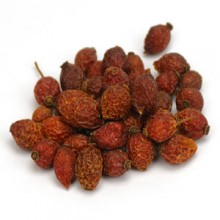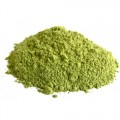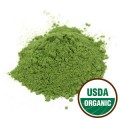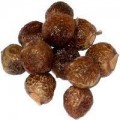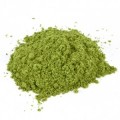 Loading... Please wait...
Loading... Please wait...- Home
- About Us
- Shipping, Returns & FAQ's
- Contact Us
-
For Your Information
- Canadian Customers Have a Choice if Shipping Via UPS
- Aura Cacia Homemade Aromatherapy Recipes
- Bella Nella Altered Art & Paper Crafts Blog
- Forms of Herbal Preparations
- Laundry Tips To Conserve Energy Blog from The Laundress
- The Story of Frontier Natural Products Co-Op
- Sovereign Silver Hydrosol and Aloe Protocol Stops Downward Spiral of Gut Dysbiosis
- Disclaimers
- Recommended Links
- RSS/Recent News
- The Story of Typhoon Housewares
- Reviews/Testimonials
- Raw Ingredients for Mfg
Rosehips Fruit (Rosa Canina) Certified Organic/Wildcrafted Bulk
Product Description
Rose hips are a great source of vitamin C (with about 1700–2000 mg per 100 g in the dried product, one of the richest plant sources.) Rose hips are also a natural way of fighting off many  diseases and ailments.
diseases and ailments.
Flowers are a beautiful part of our world, but new developments in medical science has taken flowers, weeds and other plants from the fields and put them on the drugstore shelves in the form of nutritional supplements. Many health benefits, probably known years ago to our ancestors, are being rediscovered, replacing some of the current prescription drugs.
When you think of roses, you probably think fragrance, beauty, softness, but how often do you think vitamin C, vascular system or capillaries? During World War II, the English government organized the harvesting of all available rose hips to make vitamin C syrup, since fruits were virtually unattainable at the time. Rose hips are reported to have up to 60 percent more vitamin C than citrus fruit and are rich in bioflavonoids. Bioflavonoids are important to build and strengthen body tissue. This in turn strengthens the vascular system.
Rose hips are taken by many today as a natural way to get vitamin C, vitamin E and vitamin K, and help to prevent and treat various infections, especially colds and flu. Rose hips are also taken to quicken the healing process for bruises and skin irritations. Inflammation and sore throat can find relief with rose hips, which come in capsule form and are usually taken 3 times daily. Women receive extra benefits from rose hips which help uterine cramps, heavy menstrual flow and some breast disorders.
In addition to vitamins C, E, and K, rose hips contain calcium, citric acid, iron, niacin, phosphorus, tannin, vitamin A, B1, B2, and D, essential fatty acids and antioxidant flavonoids. As a natural stimulant it gently allows movement of the bowels, as diuretic rose hips cleanse the urinary system, as a pectoral hips are a remedy for pulmonary and other lung diseases, and as a tonic the rose hips strengthen organs.
Rose hips are used for herbal tea, jam, jelly, syrup, beverages, pies, bread, and marmalade.
Rose hips have recently become popular as a healthy treat for pet chinchillas. Chinchillas are unable to manufacture their own Vitamin C and lack the proper internal organs to process many vitamin-C rich foods. Rose Hips provide a sugarless, safe way to increase the Vitamin C intake of chinchillas and guinea pigs.
Rose hips are also fed to horses. The dried and powdered form can be fed at a maximum of 1 tablespoon per day to improve coat condition and new hoof growth.
The fine hairs found inside rose hips are used as itching powder. Dried rosehips are also sold for primitive crafts and home fragrance purposes. Rosehips are scented with essential oils and can be used as a potpourri room air freshener.
Roses are propagated from hips by removing the seeds from the aril (the outer coating) and sowing just beneath the surface of the soil. Placed in a cold frame or a greenhouse, the seeds take at least three months to germinate.
In World War II, the people of Britain gathered wild-grown rose hips and made a Vitamin C syrup for children. This was because German submarines were sinking many commercial ships: citrus fruits from the tropics were very difficult to import.
Rose hips were used in many food preparations by the indigenous peoples of the Americas.
Rose hips are used for colds and influenza.
Rose hips can be used to make Palinka, a traditional Hungarian alcoholic beverage.
Rose hips of some species, especially Rosa canina (Dog Rose) and R. majalis, have been used as a source of Vitamin C. Rose hips are commonly used as a herbal tea, often blended with hibiscus and as an oil. They can also be used to make jam, jelly, marmalade and wine. Rose hip soup, "nyponsoppa," is especially popular in Sweden. Rhodomel, a type of mead, is made with rose hips.
Rose hips have a long history of use in traditional medicine. The iron in rose hips make them an excellent supplement for menstruating women, and rose hip tea is a rich source of vitamin C, carrying all the benefits of that vitamin. In addition, the various flavonoids in rose hips have potent antioxidant action, helping to protect the body from the effects of stress, aging and the environment.
Common Names: Dog rose, Hep tree, hip tree, wild brier, brier rose, hip fruit, rose haws, wild boar fruit
Common Uses: Particularly beneficial for the digestive apparatus and produces a diuretic effect without irritating the kidneys
Botanical Name: Rosa canina L.
Directions: To prepare as a tea, pour 8 oz. boiling water over 1-2 teaspoons of herb. Cover and steep for 5-10 minutes, strain and serve immediately.
Quality Notes: Rosehips color and flavor vary with harvest time. If harvested a little early, the color is bright red, with a tart flavor (alot of yellow color denotes a premature harvest and inferior quality). If harvested later, the hips are dark red to red-black and have a sweeter, jam like flavor.
Precautions: None known
Origin: Chile/S. Africa
Organic: QAI Certified Organic
Kosher: KSA Certified
| Supplement Facts | ||
|---|---|---|
| Serving Size 1 tsp (2.1g) | ||
| Servings About 268 | ||
| Amount per | % Daily | |
| Serving | Value | |
| Sodium | 75mg | 3% |
| Total Carbohydrate | 1g | <1%* |
| Dietary Fiber | <1g | 3%* |
| Vitamin C | 10mg | 17% |
| Organic Rosehips, whole | 2.1g | ** |
| * Percent Daily Values are based on a 2,000 calorie diet. ** Daily Value not established. |
||
You Recently Viewed...
Currency Converter
Choose a currency below to display product prices in the selected currency.








